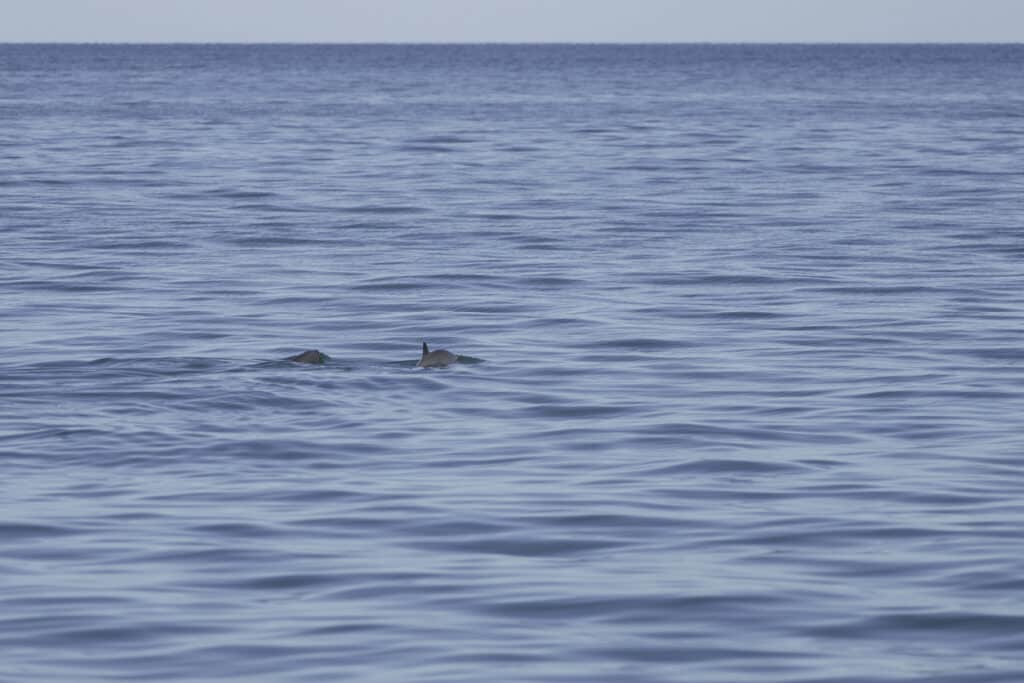As the vaquita, the world’s smallest cetacean, nears extinction, wildlife advocates continue to assess the enforcement failures which have led to the dwindling population of the porpoise. On April 11, the Commission for Environmental Cooperation, a U.S.-Mexico-Canada trade agreement body, recommended a formal investigation into Mexico’s failure to comply with its fishing and wildlife trade laws. For several years, whistleblower advocates have called for the proper implementation of whistleblower laws as a means to increase enforcement to protect the vaquita.
The vaquita, a marine mammal, is endemic to the northern end of the Gulf of California in Baja California, Mexico. The population of vaquitas has been in steep decline over recent years. It is now estimated that there are as few as ten vaquitas left in the world.
A large cause of the vaquita’s near extinction is illegal gillnet fishing. “Illegal fishing nets set to catch shrimp and totoaba, an imperiled fish coveted in China for its swim bladder, entangle and kill vaquita,” explains the Center for Biological Diversity. According to wildlife advocates, Mexico has failed to properly enforce environmental laws prohibiting gillnet fishing in vaquita habitat and banning the catch and commercial export of totoaba.
While the Commission for Environmental Cooperation’s recommended investigation focuses on Mexico’s shortcomings in protecting the vaquita, others have explained ways in which the United States is also to blame. For example, because totoaba bladders are often smuggled through the U.S. on their way to China, the United States’ enforcement of anti-trafficking laws is closely linked to threats to the vaquita.
According to whistleblower advocates, the near extinction of the vaquita can be linked back to the failure of the United States to properly implement whistleblower award programs for wildlife trafficking whistleblowers. A 2018 exposé by environmental journalist Richard Schiffman detailed how the U.S. Fish and Wildlife Service (FWS) has failed to utilize whistleblower award provisions and how this has contributed to the illegal fishing harming the vaquita. “The failure to protect the vaquita points to the US government’s larger failure to take advantage of perhaps the most powerful tool in the fight against wildlife crime: paying people to provide agents with information,” wrote Schiffman.
In the article, leading whistleblower attorney Stephen M. Kohn of Kohn, Kohn & Colapinto explains how U.S. whistleblower awards could help protect the vaquita. “‘A fisherman in Mexico, say, gets $10,000 right off the bat for providing useful tips,’ Kohn says. ‘If the information leads to a prosecution that brings down a smuggling ring, he can earn tens, maybe hundreds of thousands more if the court grants [him] 10 percent of the settlement money, as often happens in such cases. Now that would be hard to resist!’”
A number of U.S. wildlife protection laws, including the Lacey Act and Endangered Species Act, have whistleblower award provisions that authorize the FWS to pay individuals who provide the agency with information about wildlife crimes. These provisions have rarely been used, however, and the FWS has failed to publicize the possibility of whistleblower awards. In April 2018, the Government Accountability Office (GAO) released a report, “Combating Wildlife Trafficking: Opportunities Exist to Improve the Use of Financial Rewards,” that reviewed the FWS’s use of whistleblower rewards. According to the report, the FWS “communicate(s) little information to the public on financial rewards for reporting information on wildlife trafficking, such as the potential availability of rewards and eligibility criteria.”
In the same report, GAO recommended that the FWS amend the regulations of their whistleblower program. FWS amended the regulations but failed to publish them. The amended regulations were not made public until WNN published them in 2021 after obtaining them in response to a Freedom of Information Act (FOIA) request.
In 2017, Kohn gave a briefing to Congressional staffers entitled “Wildlife Whistleblowing: A Game-Changer in the Enforcement of Wildlife Trafficking Laws” in which he identified lack of law enforcement as the key driver of the Vaquita’s impending extinction. “Fishermen who wish to comply with regulations feel they are being undercut when illegal fishermen operate without constraints or punishment,” Kohn said at the briefing. “It is crucial that potential whistleblowers, like these fishermen, have a safe and confidential process of reporting violations, and are supported and incentivized to do so.”
The untapped potential of whistleblower awards in policing illegal fishing is highlighted in the one instance that the FWS has paid a whistleblower award since 2018. Based on information received in response to a FOIA request, WNN exclusively reported on an operation in which an insider worked closely with FWS officials to expose widespread illegal gillnet fishing in Northern Michigan. As of April 2019, the operations stemming from the whistleblower’s disclosure led to over twenty convictions and over $1.6 million in restitution ordered to FWS National Fish Hatcheries and tribal fish hatcheries. At that time, it was expected that several more arrests and over $1 million more in restitution would arise from the case.
In December 2021, the bipartisan Wildlife Conservation and Anti-Trafficking Act (WCATA) was reintroduced in Congress. The bill, which is widely supported by whistleblower advocates, includes requirements for federal agencies to implement whistleblower award programs.
“The U.S. government needs to get serious about enforcing its laws and incentivizing individuals to take the risk of becoming a whistleblower,” Kohn told Schiffman back in 2018. “We don’t have time to waste. Extinction is forever, and the clock is ticking.”
Read:
Operation Fishing for Funds and the Untapped Potential of US Wildlife Whistleblower Laws
Bipartisan Wildlife Whistleblower Bill Reintroduced in Congress
